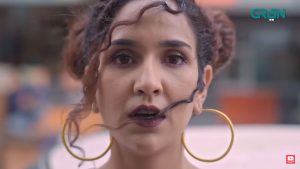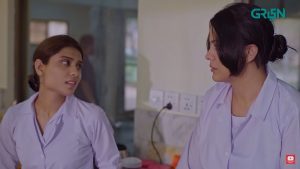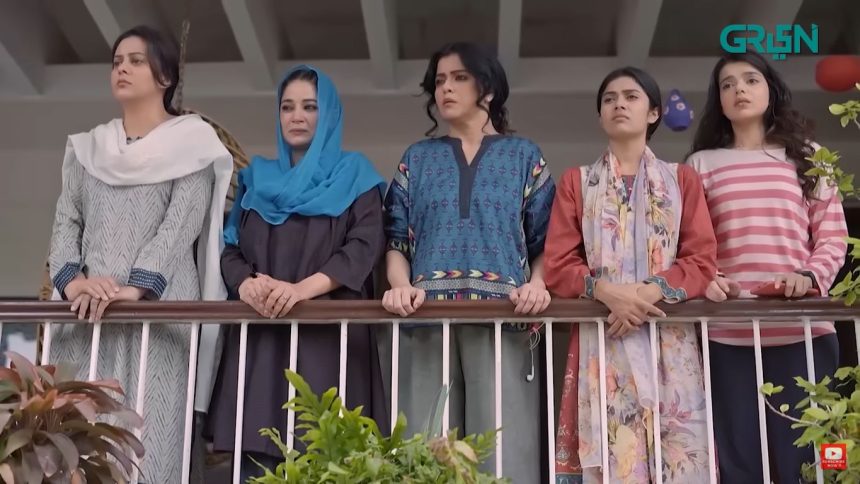Paanch barbaad aurtein. Five weathered women. All in search of a home away from home. A TikToker, a nurse, a factory supervisor, a young newspaper editor, a runaway child bride. These five women find sanctuary in the ‘Working Women Hostel,’ run by a real estate agent, also a woman. This is the premise of Green Entertainment’s project Working Women.
The series is penned by Bee Gul and directed by Yasra Rizvi; this is her second solo-directed drama after Shanaas. It stars Maria Wasti as the real estate agent (Nusrat), Anoushay Abbasi as the aspiring TikToker (Sadia), Srha Asghar as the young newspaper editor (Amber), Jinaan Hussain as the nurse (Rosie), Faiza Gillani as the factory supervisor (Hashmat), and Ilsa Hareem as the runaway child bride (Asha).

The show is essentially about the struggles these women face while trying to make it in a man’s world. It is about fighting for autonomy, whether physical or psychological.
Discourse & Themes:
Time and time again, it is lamented that the Pakistani media industry and the narratives in most television serials are heavily female-centric, that the dramas only cater to themes revolving around the lives of women and their problems. While many may agree, it is also a known fact that the lives and challenges of women portrayed in these dramas are one-dimensional and li
mited to their role in married life, more often than not as a damsel in distress. However, this is where Working Women comes in, with discourse on issues that remain prevalent but unaddressed.

Bee Gul has seamlessly woven themes in between conversations. The characters, in their own dilemmas, lay these out to the audience. Touching on subjects like choice versus helplessness/compulsion, questioning if we are aware of our freedom to choose or do we hide in the guise of helplessness because that is an easy route to take. From the dichotomy of what it means to be a ‘good’ or ‘bad’ woman, to more obscure topics like abortion and its paradoxes in society, Working Women is a brave production, constantly challenging the notions of shame and honour.

On a more positive note, the show also explores womanhood and the wonders it can do as a community for women. Nusrat, Sadia, Rosie, Amber, Hashmat, and Asha are all very different people; they have different morals and opinions. But where they fight and question each other, they are also each other’s biggest supporters and often the only ones standing up for one another when the world attempts to constrain them.
Learning, Unlearning:
While some argue that the show portrays a more Western perspective on feminism, one which women in Pakistan do not relate to, in my personal experience of watching the series, I cannot help but disagree. Working Women is a multi-faceted portrayal of what it means to be a woman in Pakistan. These are diverse characters. We are shown women from different classes, from the privileged to those who have to fight for their right to live. From women who believe in the concepts of honour to those who outrightly defy them. But none of their opinions are portrayed as the absolute truth; no one is absolutely right or wrong. We learn and unlearn with these characters.

Another important facet of the serial is the portrayal of men. There are those who try to understand, those who pretend to but couldn’t care less, those still stuck in a confusing, almost hypocritical cycle of accepting only what pleases their existence, and then those who truly understand and stand beside these women. It is also a representation of what it means to be a male ally to the female cause, its importance and consequences.

To conclude, not much can be said about Working Women without spoiling the experience of watching the series yourself. What I can say, however, is that Working Women is not a portrayal of women who defy and succeed, but those who spend their lives defying because to conform means to spend a life, not live one.
















